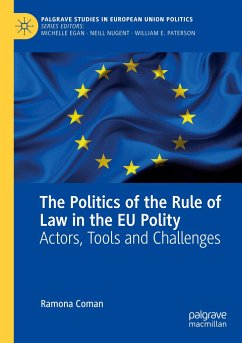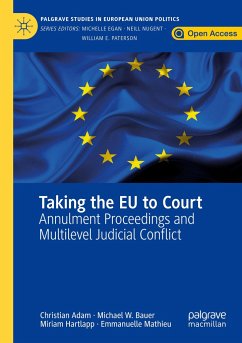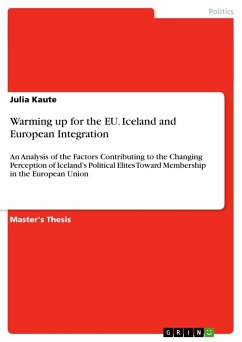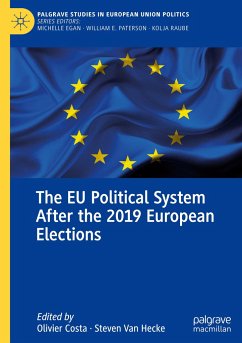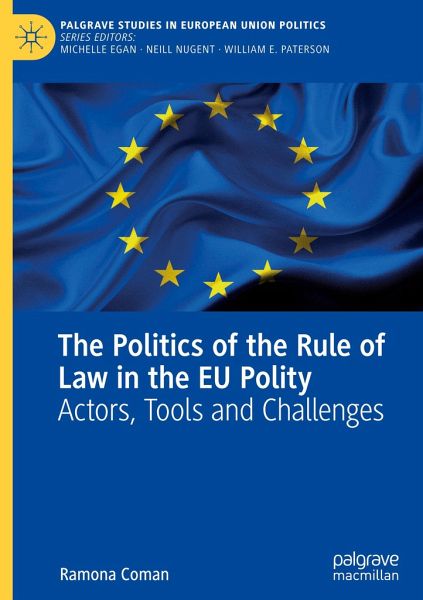
The Politics of the Rule of Law in the EU Polity
Actors, Tools and Challenges
Versandkostenfrei!
Versandfertig in 6-10 Tagen
128,39 €
inkl. MwSt.
Weitere Ausgaben:

PAYBACK Punkte
0 °P sammeln!
This book analyses the challenges facing the European Union through the frame of the rule of law. It shows how over the last decades the increased dissensus and contestation of the rule of law has given rise to heightened tensions between national and EU institutions, leading to the establishment of new soft and hard policy tools to safeguard it at the supranational level. The book proposes a comprehensive and multifaceted analysis of the current state of debates by exploring how EU institutional actors seek to uphold the Union's values. It shows that European integration in core state powers ...
This book analyses the challenges facing the European Union through the frame of the rule of law. It shows how over the last decades the increased dissensus and contestation of the rule of law has given rise to heightened tensions between national and EU institutions, leading to the establishment of new soft and hard policy tools to safeguard it at the supranational level. The book proposes a comprehensive and multifaceted analysis of the current state of debates by exploring how EU institutional actors seek to uphold the Union's values. It shows that European integration in core state powers is the outcome of the clash between liberal and anti-liberal ideas, between dissensus and contestation over how collective problems should be solved, in a community of voices featuring assent and dissent, all of which give democracy its substance. Beyond the analysis of the emerging EU's rule of law policy, the book will help readersto better understand the EU's fragilities and resilience and the potential challenges for the future of EU integration.





